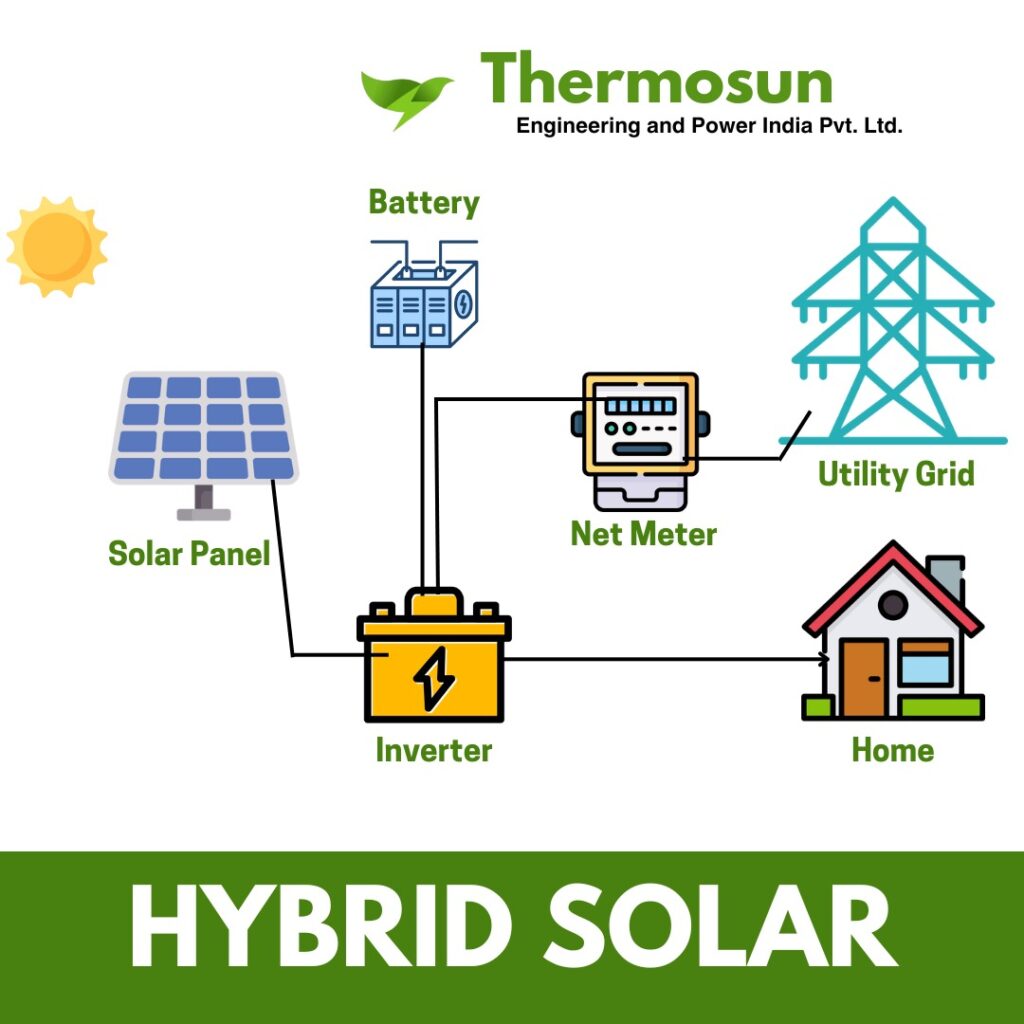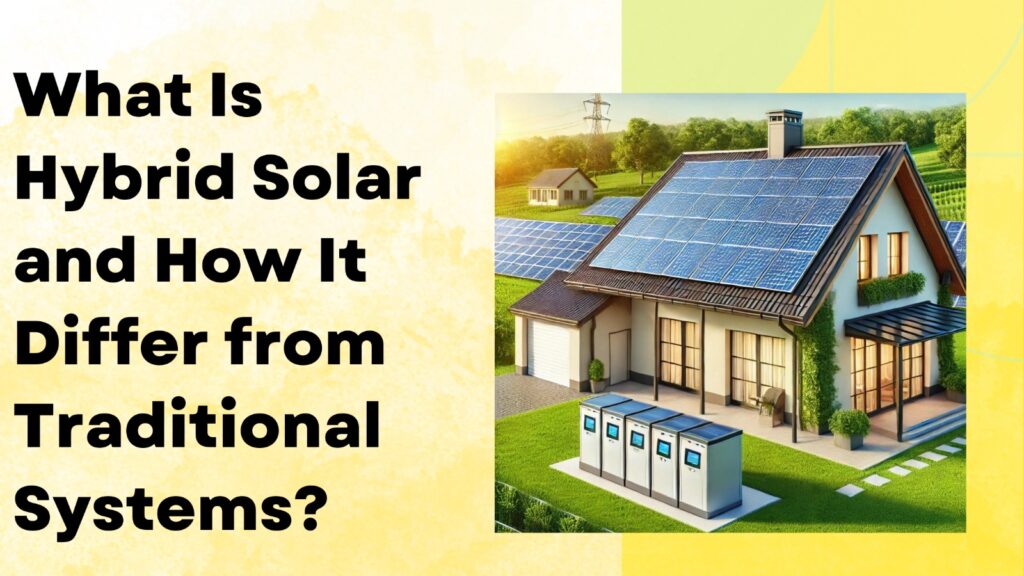An increasing number of residences and commercial buildings are using solar energy to meet their energy needs as renewable energy technology advances. Because of their special mix of benefits, hybrid solar power systems stand out from other kinds of solar systems. What is a hybrid solar power system, then, and how does it operate in contrast to a traditional solar system? The key traits, benefits, and variations of hybrid solar power systems are examined in this blog.
Understanding Hybrid Solar Power Systems
The features of both off-grid and grid-tied solar power systems are combined in a hybrid solar power system. It typically consists of solar panels, an inverter, a grid connection, and a battery storage system. In this design, the system may draw power from the grid when necessary and stores excess energy in batteries for use during blackouts or periods of low solar production.
Key Components of a Hybrid Solar Power System
- Solar panels: They collect sunlight and use it to generate power.
- Inverter: Transforms DC power from solar panels and batteries into AC power suitable for domestic usage.
- Battery storage: Holds extra solar energy in reserve for use at a later time, offering backup power at night or during blackouts.
- Grid Connection: Enables the system to export extra energy back to the grid and take electricity from it when solar or battery power is insufficient.
How Hybrid Solar Systems Operate
Solar panels gather solar energy, which an inverter then transforms into electrical power in hybrid solar power systems. Using direct solar electricity to address household energy needs is prioritized in this strategy. Extra energy produced during the day is stored by the system in batteries. The system uses the stored energy when there is minimal solar energy available, such as at night or in overcast weather. The system ensures a steady supply of electricity by drawing power from the grid in the event that the battery storage goes empty.

Differences from Traditional Solar Systems
1. Grid-Tied Systems:
- Operation: Grid-tied systems don’t need battery storage because they directly connect to the electrical grid. When solar energy output is insufficient, they pull power from the grid and return excess solar energy to it.
- Dependence on Grid: These systems are susceptible to grid outages because they completely depend on the grid for backup power.
2. Off-Grid Systems:
- Function: Off-grid systems operate without connecting to the grid, relying only on solar power and battery storage.
- Total Independence: They offer total energy independence, but to keep a steady power source going, particularly in places with limited sunlight, you’ll need sizable battery banks.
3. Hybrid Systems:
- Combination of Both: Grid-tied and off-grid systems’ features are combined in hybrid systems. They may draw power from the grid as needed and store excess energy in batteries.
- Enhanced Reliability: By balancing solar, battery, and grid electricity, these systems maximize energy utilization and offer backup power in the event of a grid outage.
Benefits of Hybrid Solar Power Systems
- Energy Independence: Hybrid systems lessen dependency on the grid and guarantee electricity supply during blackouts by storing excess solar energy.
- Cost savings: By increasing the usage of solar power and minimizing the need to purchase energy from the grid, they lower electricity expenses.
- Environmental Impact: By using renewable solar energy and reducing reliance on fossil fuels, hybrid systems help lower carbon emissions.
- Flexibility and Scalability: Hybrid systems offer flexibility for future expansions by allowing for customization and scaling based on energy requirements and usage patterns.
Conclusion
Hybrid solar power systems are preferred by those who wish to take use of the advantages of both grid-tied and off-grid systems due to their dependability and flexibility. Even in the event of a grid outage, these systems’ integration of solar energy output, battery storage, and grid connectivity provide a stable and effective power source. Hybrid solar power systems are growing in popularity as a dependable and environmentally friendly energy source as technology develops. Whether your objectives are energy independence, cost savings, or environmental sustainability, they present an alluring option that is worthwhile to take into account.

